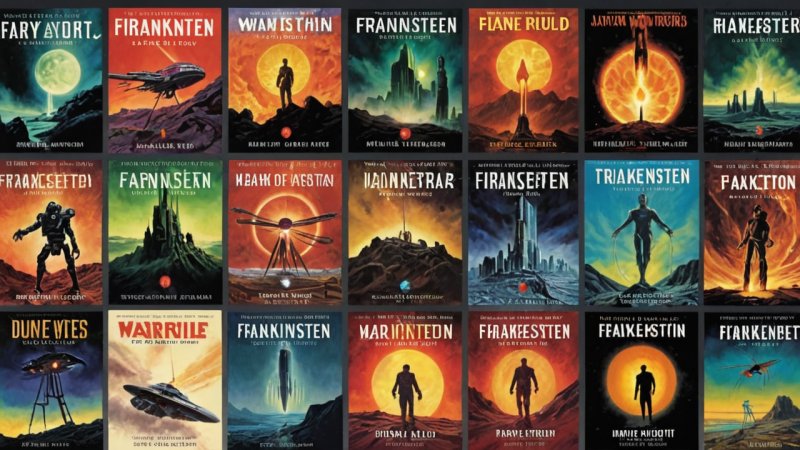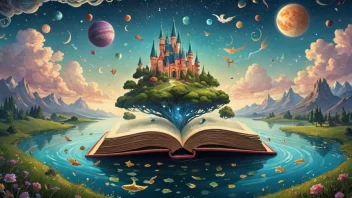Science fiction is a genre that not only entertains but also challenges our understanding of reality, technology, and humanity. Over the decades, numerous classic novels have emerged, each contributing distinctively to the evolution of science fiction. These works have not only provided captivating narratives but have also introduced groundbreaking ideas that continue to resonate with readers today. Here, we explore five classic science fiction novels that have significantly shaped the genre and left an indelible mark on literature.
1. "Frankenstein" by Mary Shelley
Published in 1818, Mary Shelley's "Frankenstein" is often hailed as the first true science fiction novel. The story of Victor Frankenstein, a scientist who creates a living being from dead matter, raises profound questions about ethics in science and the nature of humanity. Key themes include:
- The dangers of unchecked ambition and scientific exploration.
- The consequences of isolation and the quest for companionship.
- The moral implications of playing God.
Through this groundbreaking narrative, Shelley not only crafted a compelling horror story but also laid the groundwork for future explorations of artificial intelligence and genetic engineering.
2. "The War of the Worlds" by H.G. Wells
H.G. Wells's "The War of the Worlds," published in 1898, is a seminal work that introduced the idea of alien invasion to the public consciousness. This novel details the catastrophic arrival of Martians on Earth and their subsequent assault on human civilization. Its impact includes:
- Influencing the portrayal of extraterrestrial life in future literature and films.
- Challenging societal norms by depicting humanity's vulnerability.
- Offering commentary on British imperialism and the fear of the unknown.
Wells’s imaginative narrative not only entertained but also provoked thought and debate about humanity’s place in the universe.
3. "Brave New World" by Aldous Huxley
In 1932, Aldous Huxley published "Brave New World," a dystopian novel that explores the implications of a technologically advanced society where humans are genetically engineered and conditioned for their roles in life. Its major themes include:
- The dangers of state control and loss of individuality.
- The impact of technology on human relationships and emotions.
- The ethics of genetic manipulation and consumerism.
Huxley's work serves as a cautionary tale about the potential consequences of sacrificing individuality for societal stability and pleasure.
4. "Fahrenheit 451" by Ray Bradbury
Ray Bradbury's "Fahrenheit 451," published in 1953, presents a chilling vision of a future where books are banned, and 'firemen' burn any that are found. This novel poses critical questions about censorship, conformity, and the value of literature. Key elements include:
- The importance of intellectual freedom and critical thinking.
- The dangers of a passive, entertainment-driven society.
- The role of literature in fostering empathy and understanding.
Bradbury’s powerful narrative has inspired generations to advocate for the preservation of literature and the importance of diverse voices in society.
5. "Dune" by Frank Herbert
Frank Herbert's "Dune," published in 1965, is often considered one of the greatest science fiction novels of all time. Set in a distant future amidst a huge interstellar empire, the novel explores complex themes of politics, religion, and ecology. Its lasting influence includes:
- Creating a detailed and immersive universe with its own cultures and languages.
- Addressing environmental concerns and the consequences of resource exploitation.
- Inspiring a new wave of science fiction that blends ecology with epic storytelling.
Herbert's intricate world-building and exploration of profound themes have made "Dune" a touchstone for both readers and writers in the science fiction genre.
In summary, these classic science fiction novels have not only shaped the genre but have also provided timeless insights into the human condition, the ethical implications of scientific advancements, and the potential futures we might face. Each of these works invites readers to ponder deep questions about society, technology, and the essence of what it means to be human, ensuring their relevance for generations to come.






